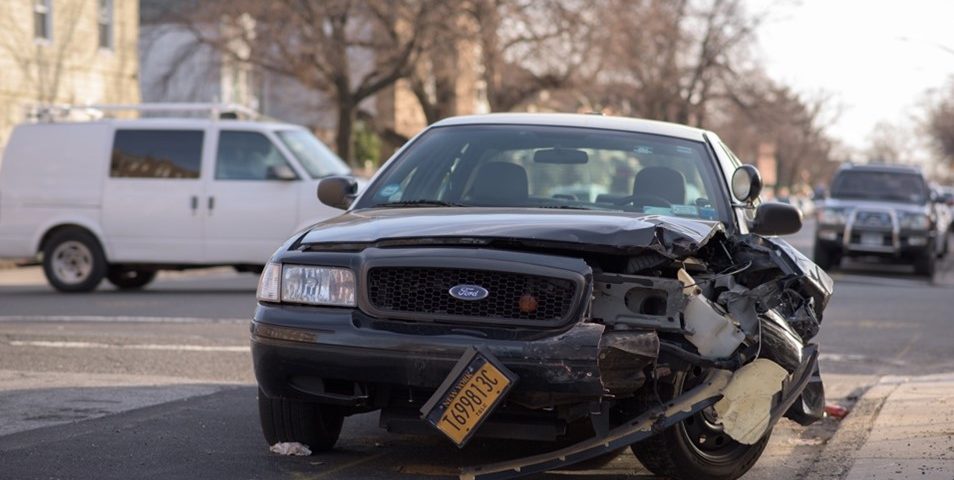- Hyderally & Associates P.C | Employment Lawyers NJ, NY
- (973) 509-8500
- tyh@employmentlit.com
Big Workers Compensation Win for Employees in New Jersey!!

New Wage Increases for New Yorkers!!!!
January 12, 2024
David versus Goliath Redux: Court Orders Multinational Corporation to Comply with Unemployed Plaintiff’s Discovery Demands
January 29, 2024Protection for driving to and from work
By: Ty Hyderally, Esq., Jennifer Vorih, Esq., and Adela Barbura
January 14, 2024
New Jersey workers who are authorized to use company cars can be eligible for workers’ compensation for injuries sustained in accidents which occur even before the employee arrives at the workplace. In a recent case, the New Jersey Supreme Court held that an employee’s car accident which occurs “in the course of employment” under N.J.S.A. 34:15-36’s “authorized vehicle rule” is compensable under the Workers’ Compensation Act (“the Act”). Henry Keim v. Above All Termite & Pest Control, 2023 N.J. LEXIS 1224, at *2 (Nov. 21, 2023).
Henry Keim (“Keim”) was employed as a salaried pest-control technician for Above All Termite & Pest Control (“Above All”), who provided Keim with an “employer authorized vehicle for work use.” Id. at *7-9. While Keim was driving the car to Above All’s shop to retrieve supplies he needed for the worksites he was scheduled to visit that day, he was involved in an accident and was injured. Keim argued that under N.J.S.A. 34:15-36’s “authorized vehicle rule,” he was entitled to compensation for his injuries. In particular, Keim maintained that he was in the course of employment since he operated an “employer authorized vehicle” on business that was “expressly authorized and directed by his employer.” Id. at *11.
Above All “had implemented a procedure that enabled technicians to collect supplies [from the shop] when those supplies needed replenishment.” Id. at *8. Thus, technicians were authorized to drive their company vehicles to the shop to collect supplies when needed instead of driving directly to a worksite. Id. On the day of the accident, after clocking in and receiving his schedule, Keim was driving to the shop to replenish the supplies he needed to perform his scheduled pest-control services for the day. Id. at *9. “On his way to the shop, Keim sustained substantial injuries in a serious car accident,” including loss of consciousness, “leaving him with balance issues that worsened over time,” and bilateral subdural hematomas, which required surgery and hospitalization. Id.
“To facilitate the task of distinguishing compensable from noncompensable incidents, the courts developed the going and coming rule, which ordinarily precluded an award of compensation benefits for ‘injuries sustained during routine travel to and from an employee’s regular place of work.’” Id. at *13 (quoting Livingstone v. Abraham & Straus, Inc., 111 N.J. 89, 96, 543 A.2d 45 (1988) (quoting Watson v. Nassau Inn, 74 N.J. 155, 158, 376 A.2d 1215 (1977))). This rule separated “work risks from ordinary risks unrelated to employment” and “was premised on the assumption that the normal journey to and from work is of no particular benefit to the employer and exposes the worker to no unusual risks.” Id. (quoting Hersh v. County of Morris, 217 N.J. 236, 243, 86 A.3d 140 (2014)). However, in 1979, the Legislature amended the Act in response to “the far-reaching effect of the ‘going and coming rule’ . . . by defining and limiting the scope of employment,” generally reflecting a “more restrictive” approach to compensation. Id. at *14-15 (quoting Hersh, 217 N.J. at 244) (quoting Joint Statement of the S. & A. Labor, Indust. & Pros. Comm. to S. 802 and A. 840 at 2 (Nov. 13, 1979))). Under the “coming and going” rule, the “injuries sustained while commuting to or from work are noncompensable.” Id. at *11.
Above All moved to dismiss Keim’s workers’ compensation claim, arguing that “Keim’s injuries did not arise out of and in the course of his employment.” Id. at *10. Above All argues that Keim’s injuries are noncompensable under the Act because “he was on routine travel to replenish work supplies at the shop while commuting to his place of employment.” Id. The New Jersey Supreme Court disagreed with Above All, holding that Keim’s injuries were compensable under the Workers’ Compensation Act. Id. at *25.
N.J.S.A. 34:15-36 sets forth four different rules governing when an employee is considered to be “in the course of employment” under the Act: the “premises rule,” the “special mission rule,” the “paid travel time rule,” and the “authorized vehicle rule.” For purposes of this case and to assess Keim’s eligibility for workers’ compensation, the Court focused on Keim’s eligibility under the “authorized vehicle rule.” Id. at *6. The “authorized vehicle rule” allows workers’ compensation benefits when an employee “utilizes an employer authorized vehicle” for “business authorized by the employer.” See N.J.S.A. 34:15-36. Based on the plain language of the “authorized vehicle rule” in N.J.S.A. 34:15-36, the NJ Supreme Court held “that an employee is in the course of employment when (1) the employer authorizes a vehicle for operation by the employee, and (2) the employee’s operation of that identified vehicle is for business expressly authorized by the employer.” Id. at *22. Because “Above All provided an authorized vehicle for operation by Keim” and “Keim’s operation of that vehicle to the shop on the morning of the car accident was solely for business expressly identified and authorized by Above All,” the New Jersey Supreme Court concluded Keim’s injuries were compensable. Id.
This case is a win for workers who utilize company cars in their work. The NJ Supreme Court’s holding enables these employees to be compensated for injuries sustained while operating an authorized company car in situations authorized by the employer. If you believe you are entitled to compensation under the Workers’ Compensation Act for injuries that occurred while you were operating an authorized company vehicle, you may want to contact Hyderally & Associates today.
En nuestra firma hablamos español. This blog is for informational purposes only. It does not constitute legal advice, and may not reasonably be relied upon as such. If you face a legal issue, you should consult a qualified attorney for independent legal advice with regard to your particular set of facts. This blog may constitute attorney advertising. This blog is not intended to communicate with anyone in a state or other jurisdiction where such a blog may fail to comply with all laws and ethical rules of that state of jurisdiction.


